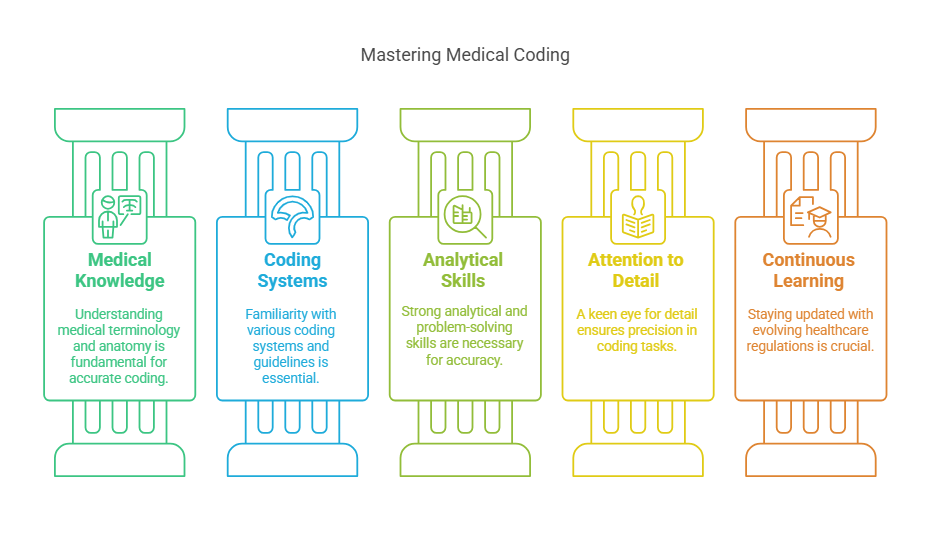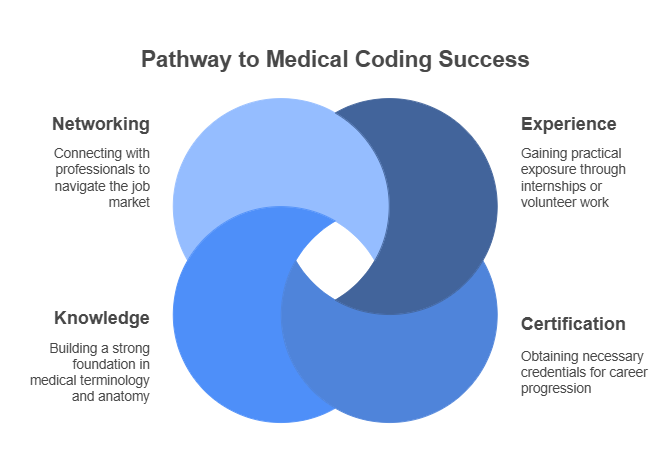Essential Guide to Legacy Education Medical Coding for Career Success
Medical coding is a vital process within healthcare settings, involving the assignment of codes to diagnoses and procedures. These codes are essential for billing and reimbursement, making them a key component in ensuring that healthcare providers are compensated appropriately for their services. A solid foundation in medical terminology and anatomy is critical for medical coders, as they must accurately translate medical information into standardized codes.

Legacy Education offers specialized training to help individuals develop the skills needed for success in this growing field. The demand for qualified medical coders has been increasing, providing numerous career opportunities. These include positions such as medical coder, coding specialist, and coding consultant. A strong understanding of medical terminology and anatomy is necessary for all these roles. Moreover, obtaining a certification in medical coding is often a requirement for securing employment in this field.
Career Opportunities and Requirements
One of the key areas in medical coding is compliance and auditing. Adherence to regulatory requirements is crucial to ensure that coding practices are both accurate and legally sound. Auditing plays a significant role in maintaining compliance and ensuring that coding errors are caught before they affect billing or reimbursement. AMBCI provides comprehensive training on compliance, auditing, medical billing and coding certification, and coding best practices, ensuring that students are equipped to meet the regulatory demands of the healthcare industry.

Compliance and Auditing in Medical Coding
Success in medical coding also requires certain skills and knowledge. A deep understanding of medical terminology and anatomy, combined with knowledge of coding systems and guidelines, is essential. Medical coders must possess strong analytical and problem-solving abilities, an eye for detail, and the ability to maintain accuracy in their work. Additionally, the healthcare landscape is continually evolving, so a willingness to learn and stay up-to-date with changing regulations is key to maintaining a successful career.

Skills and Knowledge for Success
For those launching a career in medical coding, gaining experience through internships or volunteer work can be invaluable. Certification in medical coding is often a necessary step for career advancement. Building a strong foundation in medical terminology and anatomy, staying informed about evolving regulations, and networking with professionals in the field can help individuals navigate the competitive job market and secure employment in medical coding.

Six Lesser-Known Facts About Medical Coding
Medical coding professionals can specialize in different coding systems, such as ICD-10-CM (International Classification of Diseases), CPT (Current Procedural Terminology), and HCPCS (Healthcare Common Procedure Coding System).
ICD-10-CM (Centers for Disease Control and Prevention)
Some medical coders work remotely, offering flexibility and the ability to work from home, which is becoming more common post-2020.
Remote Medical Coding (AAPC)
The salary for medical coders can vary greatly depending on the specialization and location, with some positions offering six-figure salaries for experienced professionals.
Medical coding certifications can be obtained from various organizations, including the American Academy of Professional Coders (AAPC) and the American Health Information Management Association (AHIMA).
Continuous education is essential in this field, as coding systems and healthcare regulations change regularly. Medical coders must stay updated on revisions and new guidelines.
Medical coders are also sometimes involved in clinical research, helping to ensure that the data collected for studies is coded properly for analysis.
Medical Coding in Clinical Research (National Institutes of Health)
Frequently Asked Questions (FAQs) About Medical Coding
-
The best way to start is by obtaining formal training, such as those offered by Legacy Education, and then pursuing certification. Gaining experience through internships or volunteer positions can also be helpful.
-
A college degree is not required, but a certification in medical coding is often necessary for most positions. Training programs are available that focus on the essential skills for coding.
-
The time it takes to become a certified medical coder depends on the individual’s prior knowledge and the type of certification pursued. Generally, it can take anywhere from six months to a year to complete the necessary training and certification exams.
-
The most common coding systems are ICD-10-CM, CPT, and HCPCS. Each system serves a different purpose, such as coding diseases, medical procedures, and healthcare services.
-
Yes, many medical coders work remotely, especially with the growing trend toward telehealth and virtual healthcare services. However, employers may require coders to have certain levels of experience or certifications before allowing remote work.
